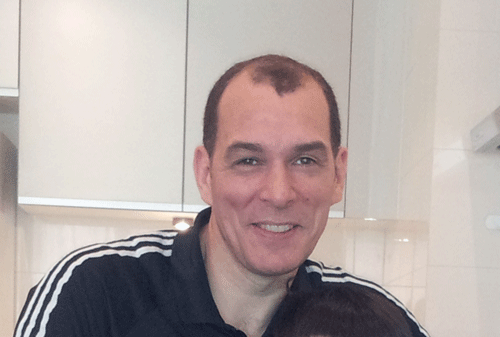Let's get physical
Updated: 2012-10-26 10:09
By Xiao Xiangyi (China Daily)
|
|||||||||||

Walter MacDonald is founder of WM Consultants. |
British entrepreneur energizing the Chinese fitness industry
While most international investors view making money from China's burgeoning fitness market as something akin to trying to eat soup with chopsticks, British entrepreneur Walter MacDonald has already taken a large spoon to the industry.
The 47-year-old was the most discussed lecturer at the three-day China Fitness Summit in September in Beijing. Despite not speaking Chinese, he was surrounded by a crowd of fitness club owners and investors for half an hour after his speech.
MacDonald is the founder of WM Consultants, a fitness management company based in Shenzhen. The veteran fitness club manager is now trying to fix the flawed Chinese fitness industry by injecting his 27 years of experience and passion into it.
"The market is moving on and consumers are becoming more discerning in their choices. But the industry still has a long way to go before people fully trust health clubs. My job is to improve the situation," he says.
MacDonald began his career as a personal trainer working for a private fitness club, before becoming a manager and aerobics teacher at several clubs in the UK.
He first came to China in 1995 as resort manager at the Hyatt Regency Macao. However, that did not prepare him for the immaturity of the market he found when he moved to Shanghai in 2001 to become director of a fitness club.
Most investors seek quick returns and are willing to take shortcuts and sacrifice quality to get them, says MacDonald, but that is not a good long-term business model.
On moving to Shanghai he was shocked to see people smoking while they exercised and spitting on the floor of the gym.
"I went to stop them and they said 'What's wrong?' I was angry and thought, how could they not know what was wrong," he recalls.
"I told them, 'Sorry, here is your money back. I don't want you in my club.'"
MacDonald believes club operators have to be tough in order to build and maintain reputation.
Before launching his wellness consulting firm, he considered opening his own Chinese fitness club, but decided against the idea. There are inherent risks to all businesses, but particular barriers that made him decide against opening a gym, he says.
"If I had opened my own club here as I did in the UK I am confident it would have been a success. However, finding a suitable convertible property in the right location is hard to get right. And added to that, the current state of China's real estate market had a strong bearing on my thinking," he says.
Getting the right licenses and finding a suitable local partner were also factors in the decision, he says.
MacDonald is frequently frustrated to see clubs with an unclear or wrong mission, vision or values as well as a lack of customer focus.
With 27 years of fitness industry experience, including 17 years in China, he sees the differences between China and the West more clearly than most others.
Many clubs being built in China today are in some ways better than their Western counterparts, he believes.
"But I wouldn't say they are better designed, as frequently the design has no input from a fitness professional who actually uses clubs and understands how one should flow," he says.
"The operation and mix of wet and dry facilities are often far from ideal. I have even seen an aerobics studio playing loud music positioned next to a spa."
Over the past five years MacDonald has helped operators, investors and developers with a lack of experience in the industry launch clubs across the country.
"Many clients think it is easy to set up and operate a club, but to do it professionally is in fact extremely challenging and very detail-orientated to get right," he says.
He has no favorite project as each one provides new challenges and requires a different set of skills depending on the client's intent.
"I enjoyed the Zhuhai project as it was a year in duration," he says. "That allowed me to steer things and set foundations for the future of the club. But in general every project has been rewarding in different ways, in that you have to set up a profitable facility that the client can be proud of and at the same time energize the staff to believe in themselves and become positive thinkers."
The scale of projects varies from long-term ones that include every aspect from design to opening, to short term ones lasting a few months. Short term projects are often operations reviews intended to help a club improve its service.
MacDonald says he feels privileged to be involved in developing China's fitness industry, but is also frequently frustrated when his visions fail to become reality.
"Of course it is the client's right to disagree with my proposals and compromise is a place I have been to many times," he says.
"However, it is always interesting to hear about and see different ideas and concepts that can be adopted into club design."
xiaoxiangyi@chinadaily.com.cn
(China Daily 10/26/2012 page13)
Today's Top News
Rescuers race against time for quake victims
Telecom workers restore links
Coal mine blast kills 18 in Jilin
Intl scholarship puts China on the map
More bird flu patients discharged
Gold loses sheen, but still a safe bet
US 'turns blind eye to human rights'
Telecom workers restore links
Hot Topics
Lunar probe , China growth forecasts, Emission rules get tougher, China seen through 'colored lens', International board,
Editor's Picks

|

|

|

|

|

|





